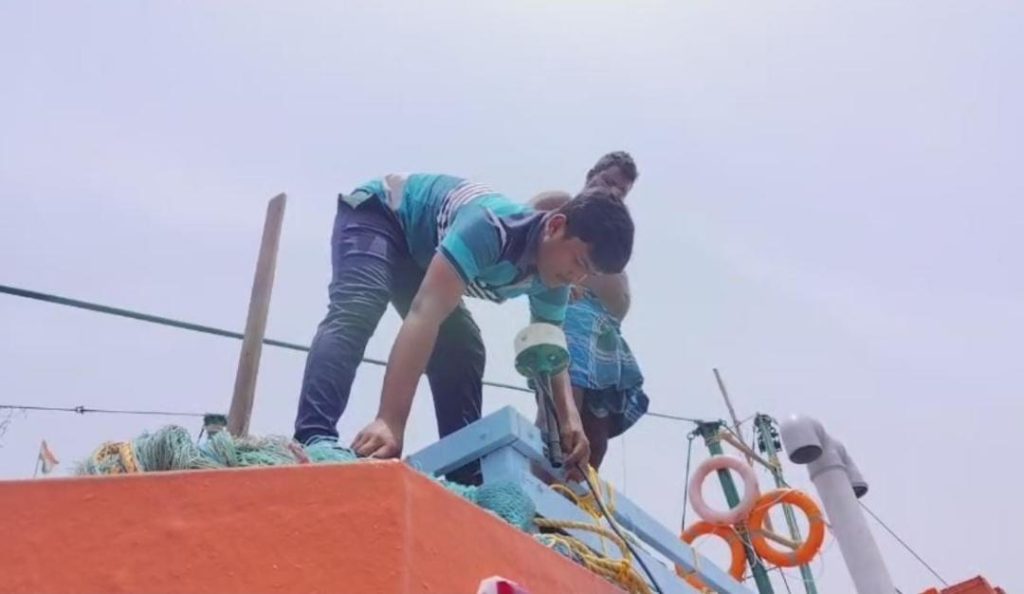
ISRO’s Transponder Technology Protecting West Bengal’s Fishermen
The Indian Space Research Organisation (ISRO) has long been at the forefront of developing innovative technologies to benefit various aspects of Indian society. The latest example of this is the Satellite-Based Maritime Safety Assistant System, or Transponder, which is being used to enhance the safety of deep-sea fishermen in West Bengal.
The Transponder technology has been installed in over 300 trawlers operating in the state, providing a high-tech safety lifeline to these fishermen who venture into treacherous waters in search of a livelihood. The system is designed to provide real-time communication, location tracking, and emergency response capabilities, significantly reducing the risks faced by these fishermen.
West Bengal is one of the largest fishing states in the country, with thousands of fishermen venturing into the Bay of Bengal and the Arabian Sea every day. However, the waters off the state’s coast are notorious for their rough weather conditions, strong currents, and unpredictable sea conditions, making it a challenging and often hazardous occupation.
The ISRO-developed Transponder technology is a game-changer for these fishermen, providing them with a reliable and efficient means of communication and navigation. The system uses a satellite-based communication network to enable fishermen to send distress signals and receive critical information in real-time, including weather updates, navigational alerts, and emergency response instructions.
The Transponder device is a small, waterproof unit that is installed on the trawlers, providing a dedicated communication channel between the fishermen and the shore-based authorities. The system is designed to work even in areas with limited or no cellular coverage, ensuring that fishermen can get help in case of an emergency.
The impact of the Transponder technology has been significant, with fishermen reporting a significant reduction in the number of incidents and accidents at sea. The system has also enabled fishermen to respond more effectively to emergencies, reducing the risk of loss of life and property.
According to the Fisheries Department of West Bengal, the number of incidents at sea has decreased by over 50% since the introduction of the Transponder technology. The department has also reported a significant reduction in the number of fishermen reported missing or killed at sea.
The Transponder technology is not only a lifesaver for the fishermen but also a boon for the state’s economy. The fishing industry is a major contributor to West Bengal’s economy, providing employment opportunities to thousands of people and generating significant revenue.
The ISRO-developed technology has also opened up new opportunities for the state’s fishing industry, enabling fishermen to venture into deeper waters and expand their catch. The system’s location tracking feature also allows fishermen to monitor their catch and optimize their routes, reducing fuel consumption and increasing their earnings.
The success of the Transponder technology in West Bengal is a testament to the power of innovation and collaboration between government agencies and research institutions. The technology has the potential to be replicated in other fishing communities across the country, providing a safer and more efficient means of fishing.
In conclusion, the ISRO-developed Transponder technology is a revolutionary innovation that is transforming the lives of West Bengal’s fishermen. The system’s ability to provide real-time communication, location tracking, and emergency response capabilities has significantly reduced the risks faced by these fishermen and has opened up new opportunities for the state’s fishing industry.
As the Indian space agency continues to develop new technologies to benefit various aspects of Indian society, the Transponder technology is a shining example of the positive impact that innovation can have on people’s lives.
Source: https://thecsrjournal.in/isro-transponder-technology-brings-safety-revolution-west-bengal-fishermen/






